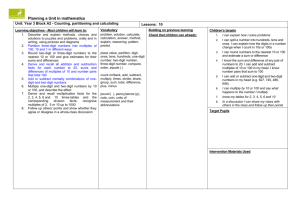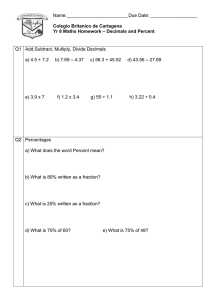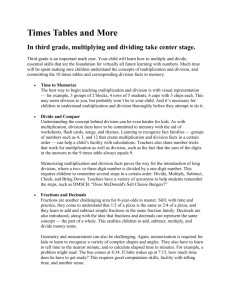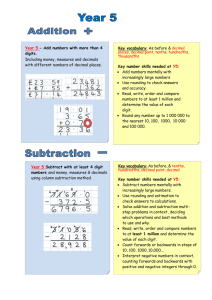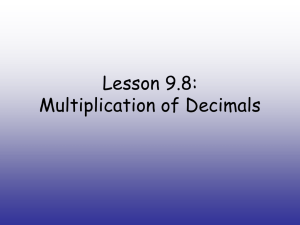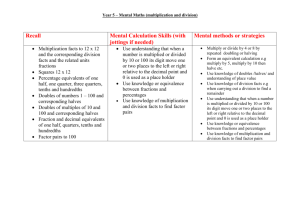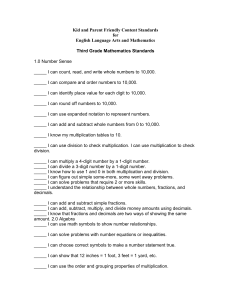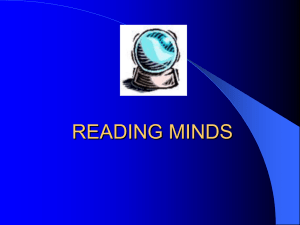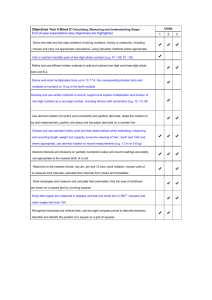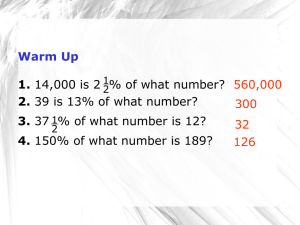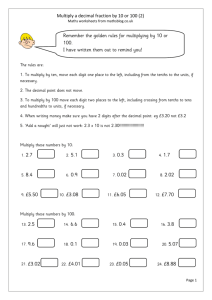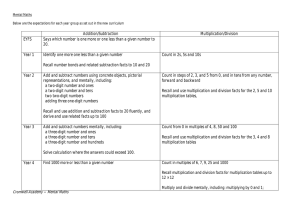Unit: Y 4 Block A2 Counting, partitioning and calculating
advertisement
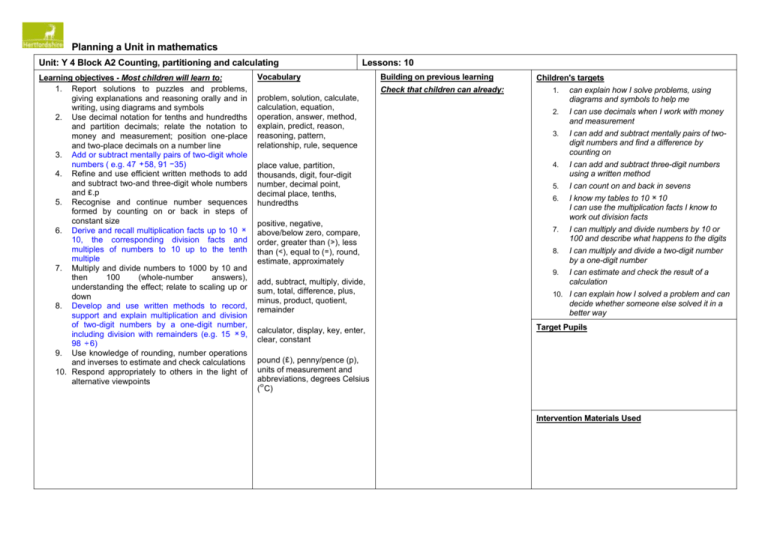
Planning a Unit in mathematics Unit: Y 4 Block A2 Counting, partitioning and calculating Learning objectives - Most children will learn to: 1. Report solutions to puzzles and problems, giving explanations and reasoning orally and in writing, using diagrams and symbols 2. Use decimal notation for tenths and hundredths and partition decimals; relate the notation to money and measurement; position one-place and two-place decimals on a number line 3. Add or subtract mentally pairs of two-digit whole numbers ( e.g. 47 58, 91 35) 4. Refine and use efficient written methods to add and subtract two-and three-digit whole numbers and .p 5. Recognise and continue number sequences formed by counting on or back in steps of constant size 6. Derive and recall multiplication facts up to 10 10, the corresponding division facts and multiples of numbers to 10 up to the tenth multiple 7. Multiply and divide numbers to 1000 by 10 and then 100 (whole-number answers), understanding the effect; relate to scaling up or down 8. Develop and use written methods to record, support and explain multiplication and division of two-digit numbers by a one-digit number, including division with remainders (e.g. 15 9, 98 6) 9. Use knowledge of rounding, number operations and inverses to estimate and check calculations 10. Respond appropriately to others in the light of alternative viewpoints Lessons: 10 Vocabulary Building on previous learning Check that children can already: problem, solution, calculate, calculation, equation, operation, answer, method, explain, predict, reason, reasoning, pattern, relationship, rule, sequence place value, partition, thousands, digit, four-digit number, decimal point, decimal place, tenths, hundredths positive, negative, above/below zero, compare, order, greater than ( ), less than ( ), equal to ( ), round, estimate, approximately add, subtract, multiply, divide, sum, total, difference, plus, minus, product, quotient, remainder calculator, display, key, enter, clear, constant Children's targets 1. can explain how I solve problems, using diagrams and symbols to help me 2. I can use decimals when I work with money and measurement 3. I can add and subtract mentally pairs of twodigit numbers and find a difference by counting on 4. I can add and subtract three-digit numbers using a written method 5. I can count on and back in sevens 6. I know my tables to 10 10 I can use the multiplication facts I know to work out division facts 7. I can multiply and divide numbers by 10 or 100 and describe what happens to the digits 8. I can multiply and divide a two-digit number by a one-digit number 9. I can estimate and check the result of a calculation 10. I can explain how I solved a problem and can decide whether someone else solved it in a better way Target Pupils pound ( ), penny/pence (p), units of measurement and abbreviations, degrees Celsius ( C) Intervention Materials Used
